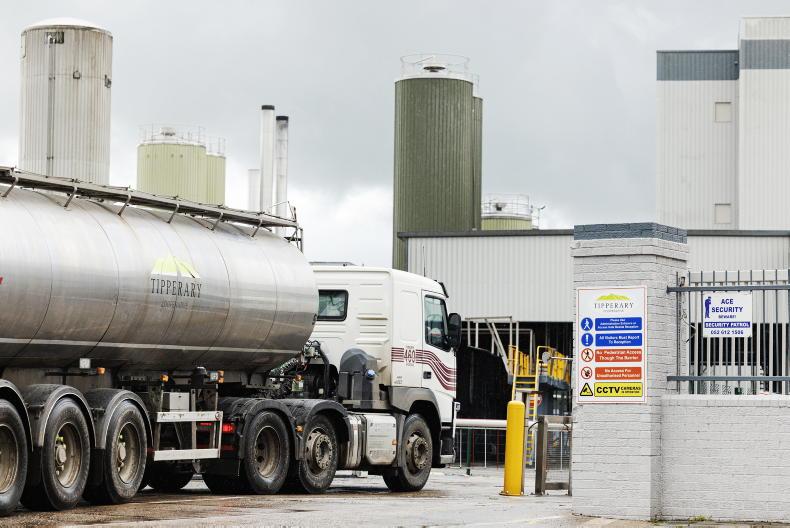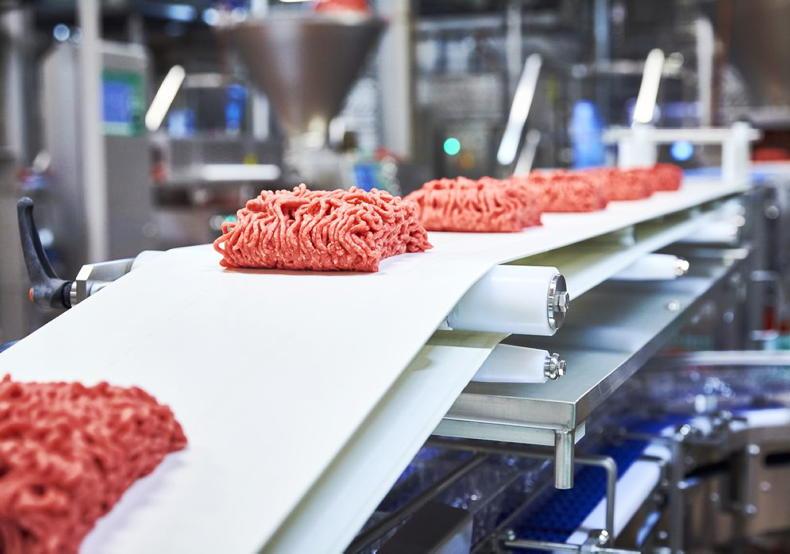Packed shelves and wide-ranging menus are taken for granted by society with little thought given by consumers on how this is possible. The global pandemic did lead to some panic buying but it is a tribute to our farmers, factory workers and shop assistants that nobody went short of food.
No sooner than we were getting out of the pandemic than war returned to Europe with Russia’s invasion of Ukraine. This has caused serious inflation, particularly for energy, but again food supplies remain fully available even if they are more expensive.
This is made possible by a long and complex supply chain that begins on the farm and ends with the goods in a supermarket cabinet or a restaurant menu. Along this chain are a series of jobs requiring different skillsets that get food from the farm through processing and distribution to the plate.
Each stage brings a career opportunity and a mix of skills and competencies are required.
At farm level, most businesses are family owned but not all farm families want to work on farm. This creates opportunities for farm workers and managers, while beyond the farm gate the processing industry is one of the largest employers in rural Ireland with 174,000 employed in total in 2021 (Department of Agriculture annual report).
The perception is that these are tough manual jobs in a cold working environment. While it is true that food production areas are temperature-controlled, machines have removed much of the manual labour requirement. It should also be highlighted that food factories provide a range of career opportunities in the support and logistics sector as well as accounting and computing.

Agri food processors require a range of skills to make factories and the distribution chain work. / Donal O'Leary
While formal qualifications are encouraged, there remain plenty of examples of people who started their careers on the factory floor and progressed to running the factory. This also applies to many of the most successful entrepreneurs in the food industry with the companies they have built now major employers of graduates.
A further feature of employment in the food industry is that it is predominantly rural-based. In the recent Irish Farmers Journal Agribusines report published in association with KPMG, studies of five key rural towns show that their hinterland is dominated by farming and agri-food processing.
Given the difficulties with housing availability and affordability in our cities this has to be a consideration as it is usually less of an issue in rural towns and villages.
The pandemic followed by war has increased the awareness in consumers about the value of food and energy.
The need for food security means security of careers in food production from the farm through to the plate. Each step requires people and that is the basis for a range of careers in the food industry that suit all abilities.
Packed shelves and wide-ranging menus are taken for granted by society with little thought given by consumers on how this is possible. The global pandemic did lead to some panic buying but it is a tribute to our farmers, factory workers and shop assistants that nobody went short of food.
No sooner than we were getting out of the pandemic than war returned to Europe with Russia’s invasion of Ukraine. This has caused serious inflation, particularly for energy, but again food supplies remain fully available even if they are more expensive.
This is made possible by a long and complex supply chain that begins on the farm and ends with the goods in a supermarket cabinet or a restaurant menu. Along this chain are a series of jobs requiring different skillsets that get food from the farm through processing and distribution to the plate.
Each stage brings a career opportunity and a mix of skills and competencies are required.
At farm level, most businesses are family owned but not all farm families want to work on farm. This creates opportunities for farm workers and managers, while beyond the farm gate the processing industry is one of the largest employers in rural Ireland with 174,000 employed in total in 2021 (Department of Agriculture annual report).
The perception is that these are tough manual jobs in a cold working environment. While it is true that food production areas are temperature-controlled, machines have removed much of the manual labour requirement. It should also be highlighted that food factories provide a range of career opportunities in the support and logistics sector as well as accounting and computing.

Agri food processors require a range of skills to make factories and the distribution chain work. / Donal O'Leary
While formal qualifications are encouraged, there remain plenty of examples of people who started their careers on the factory floor and progressed to running the factory. This also applies to many of the most successful entrepreneurs in the food industry with the companies they have built now major employers of graduates.
A further feature of employment in the food industry is that it is predominantly rural-based. In the recent Irish Farmers Journal Agribusines report published in association with KPMG, studies of five key rural towns show that their hinterland is dominated by farming and agri-food processing.
Given the difficulties with housing availability and affordability in our cities this has to be a consideration as it is usually less of an issue in rural towns and villages.
The pandemic followed by war has increased the awareness in consumers about the value of food and energy.
The need for food security means security of careers in food production from the farm through to the plate. Each step requires people and that is the basis for a range of careers in the food industry that suit all abilities.










SHARING OPTIONS